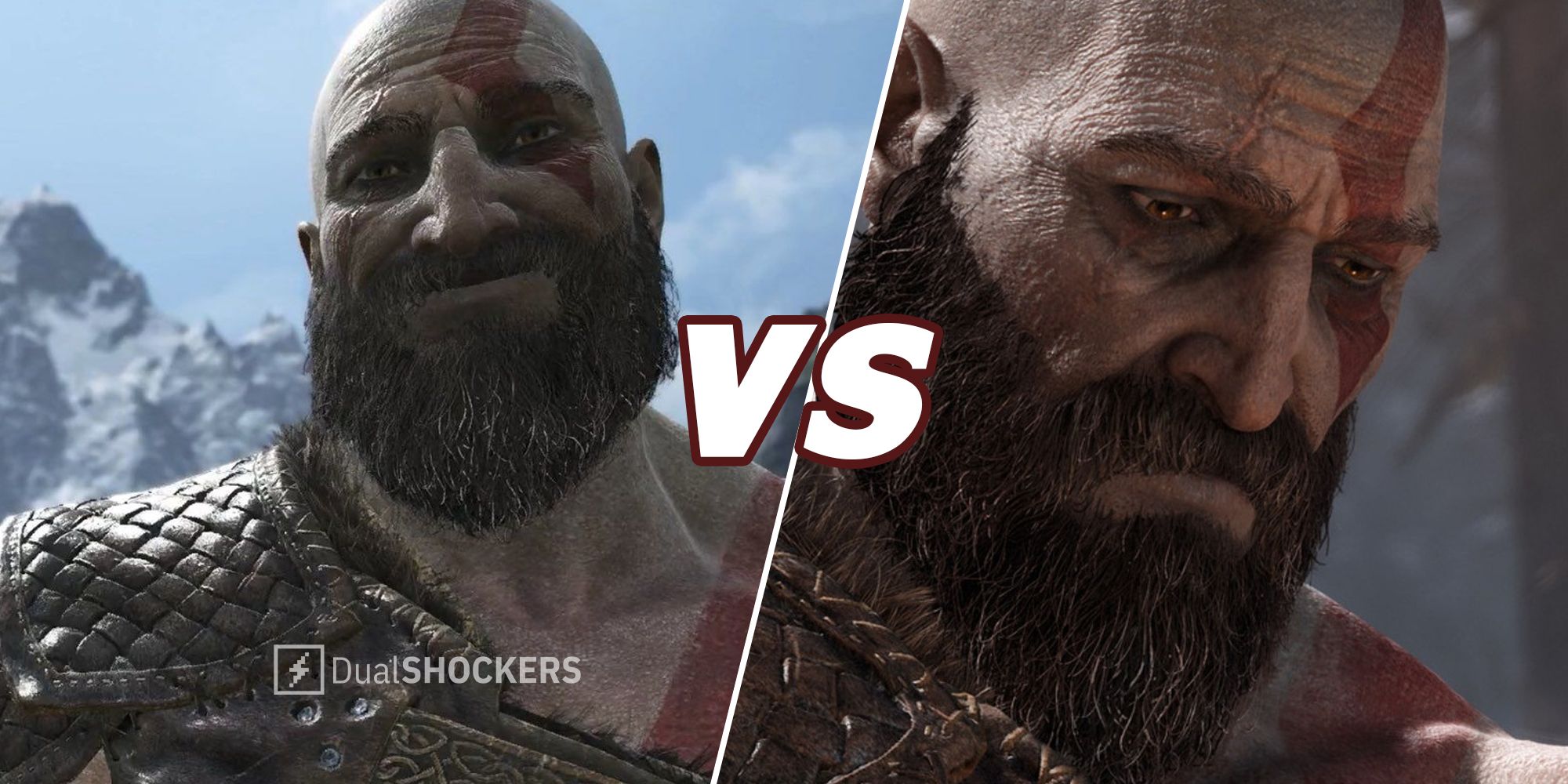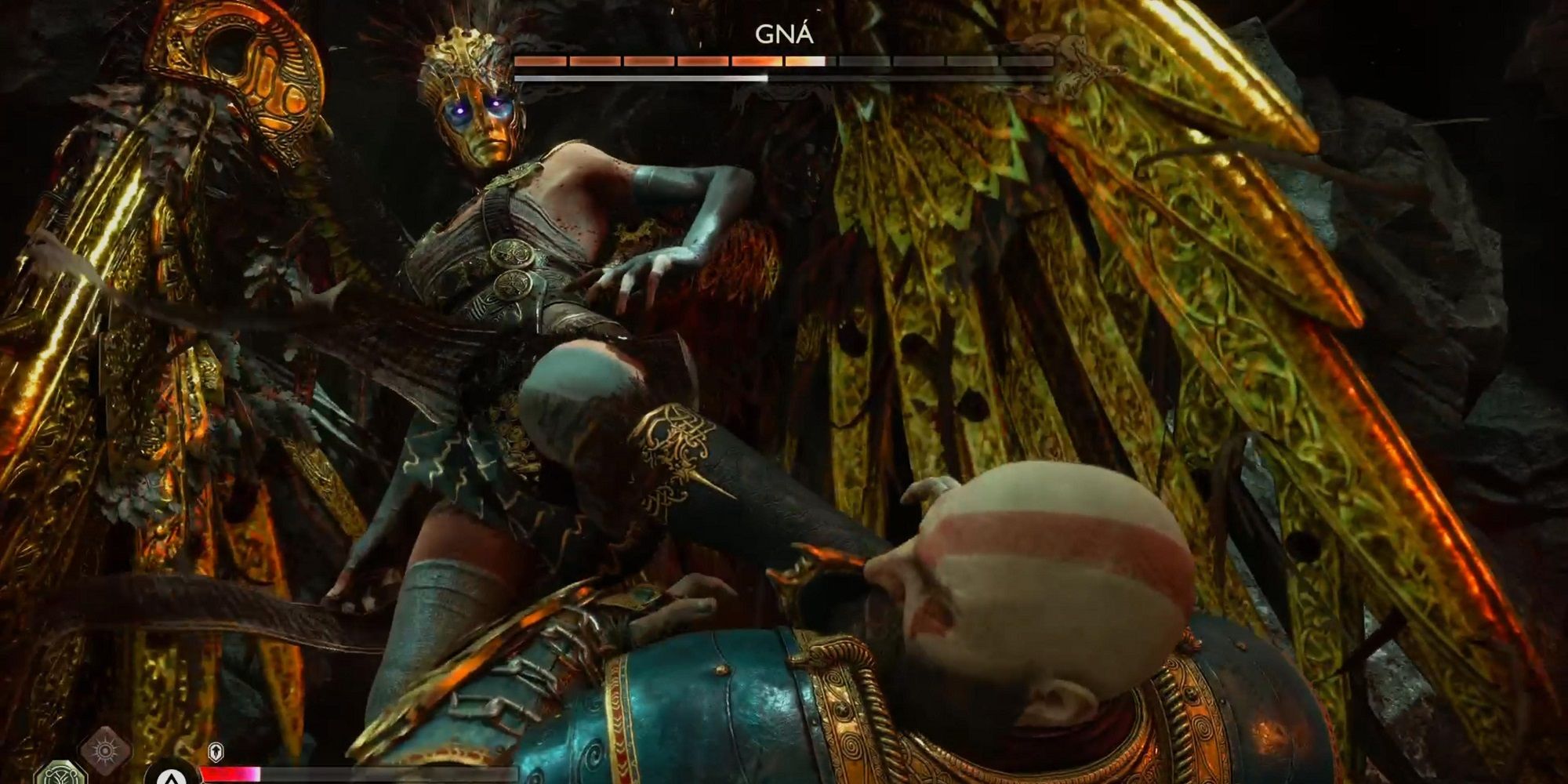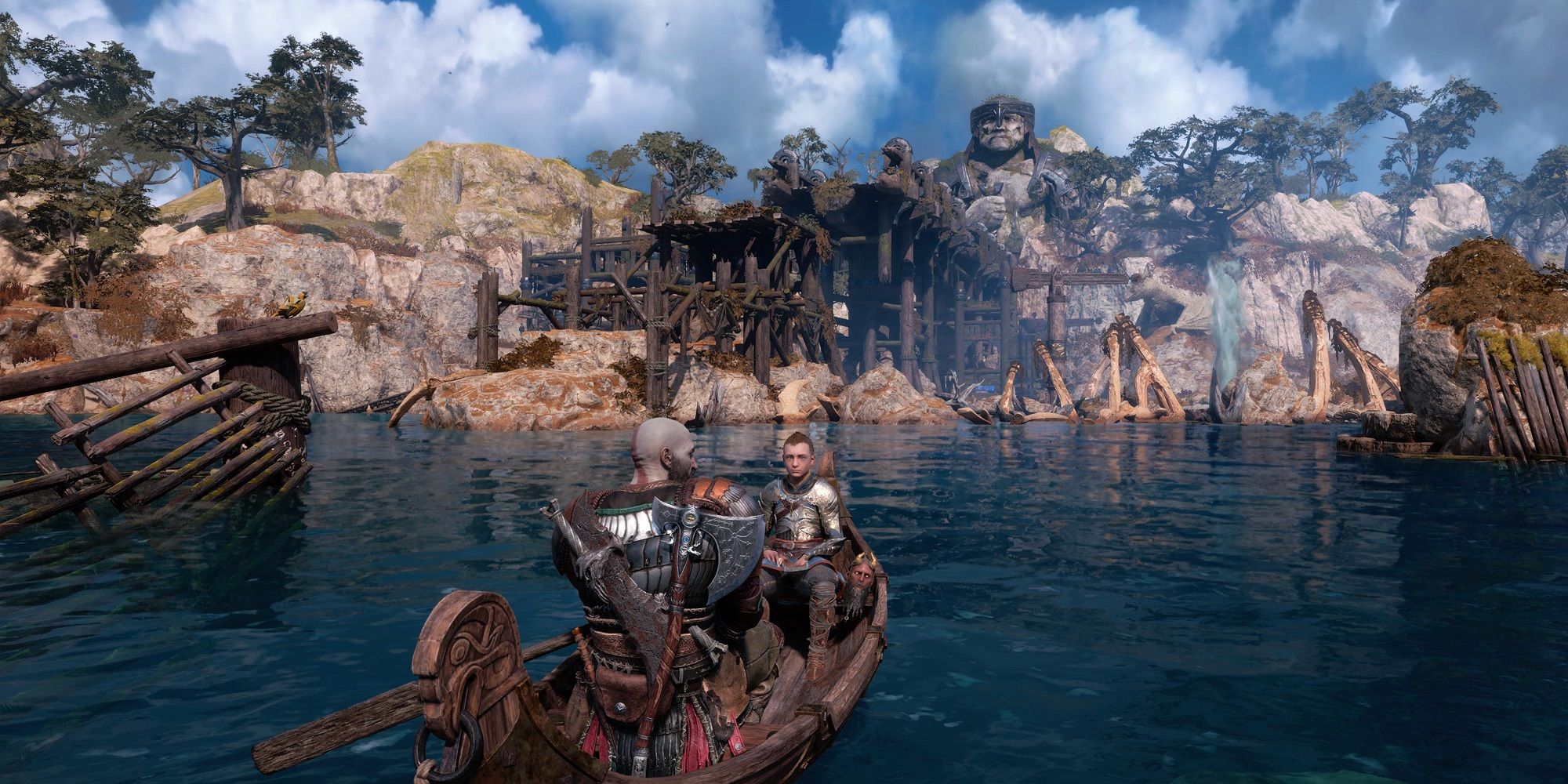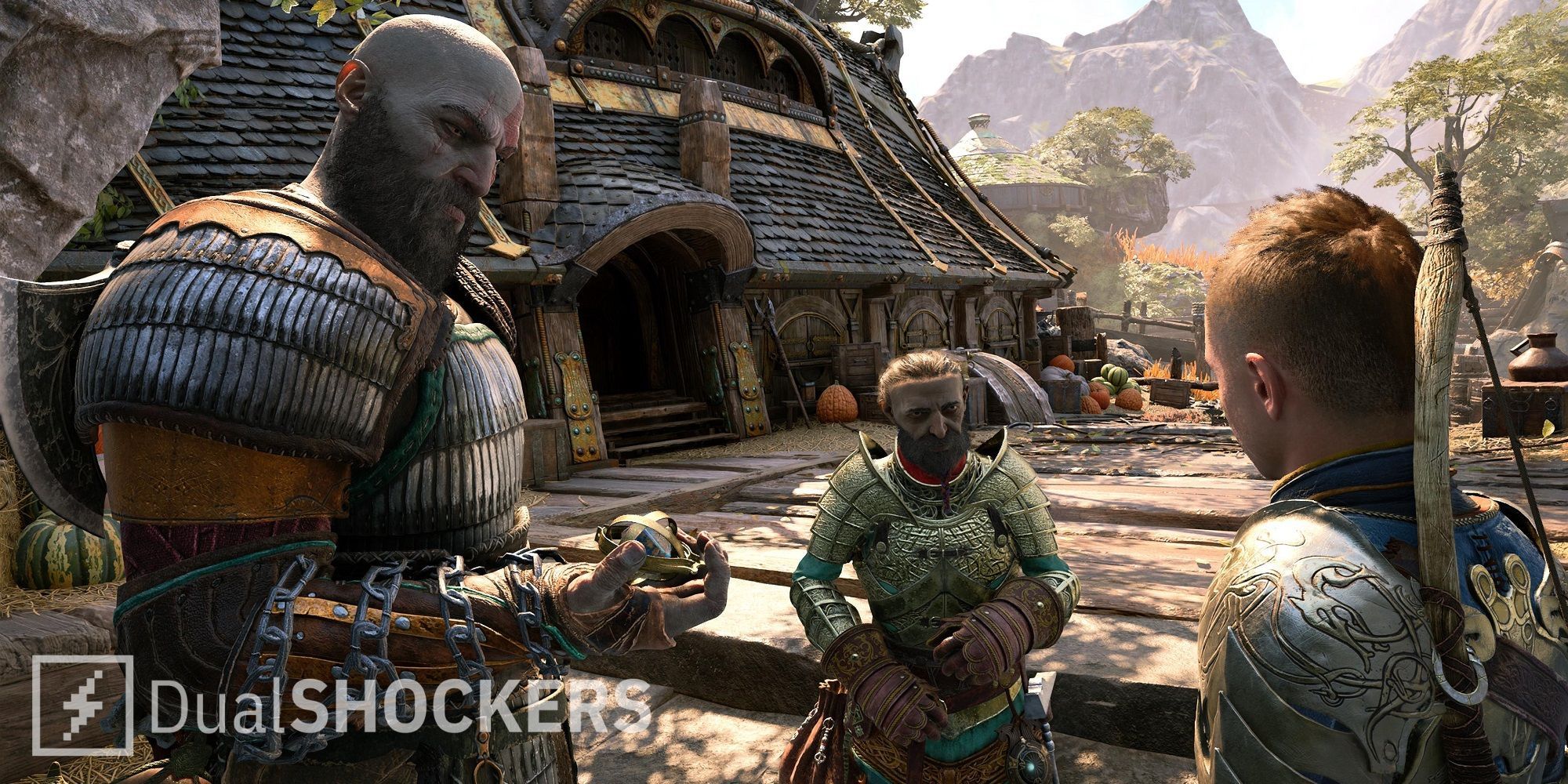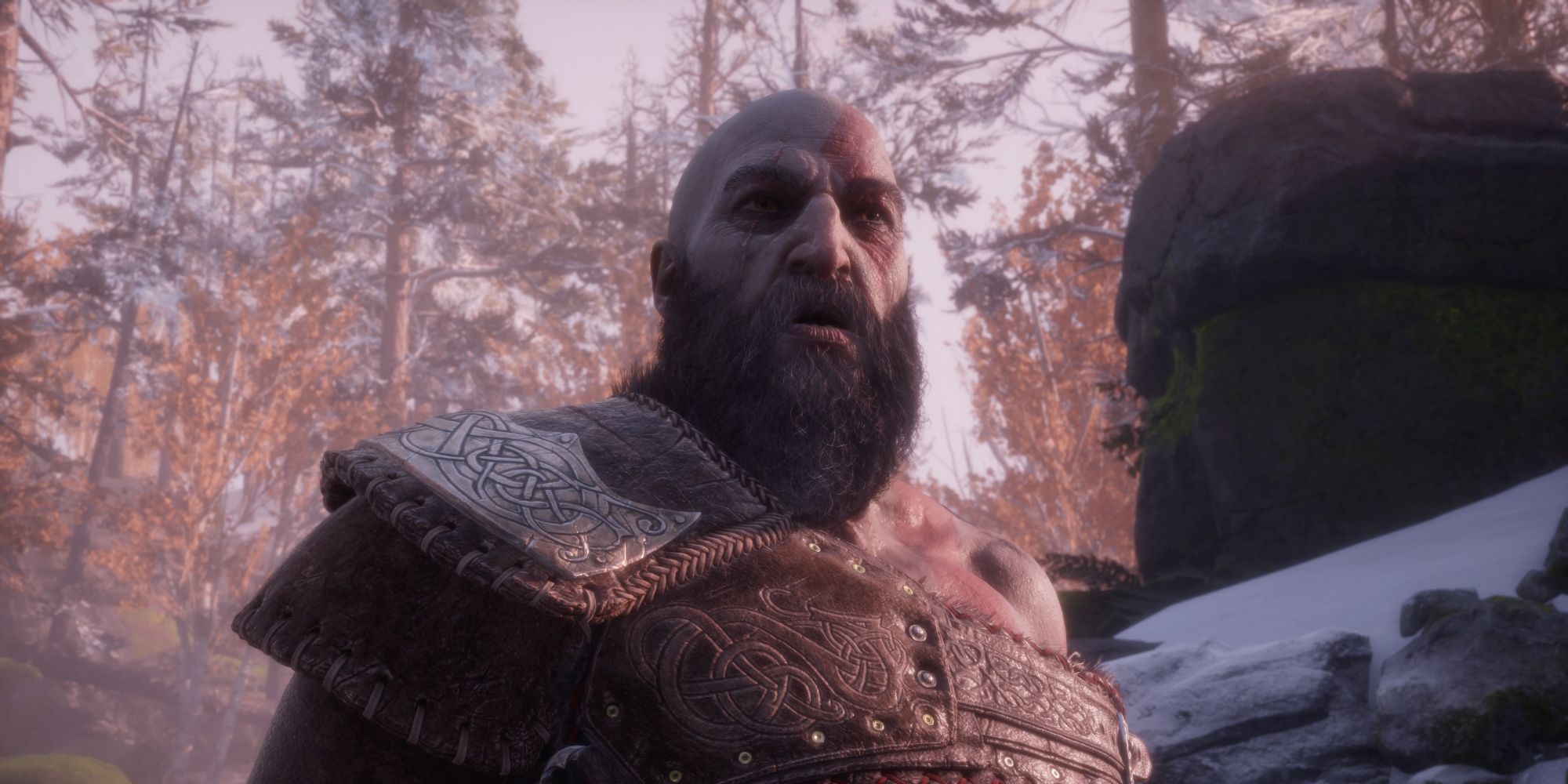Earlier this week, certain segments of the gaming community embarrassed themselves by sending death threats to a reviewer who decided to give God of War: Ragnarok a 6/10 score. Let's be clear: the kind of people who are so intertwined with an IP that they'll shriek down anyone who dares not like it are pathetic, and getting outraged over their tiresome behaviour simply pulls us into their quiet little quagmires of self-loathing.
But enough about the brats. Let's talk about that 6/10 review itself (written by Sanghyun Bae at IGN Korea). It's by far and away the lowest score for God of War Ragnarok - an extreme outsider opinion that of course is going to kick up some controversy. That doesn't mean we can't tackle this in a healthy way. Over at the other extreme is our own reviewer, Jeff Brooks, who loved Ragnarok so much that he gave it a 10/10; considering we use a decimal-based scoring system, that's equivalent to 100/100 - an all-time masterpiece.
It's a fascinating contrast, so (unlike the people who lost their minds over the 6/10) we've decided to actually read the review to see what it had to say, picking out its key critiques and having Jeff address them without hurling abuse at the reviewer - y'know, like a reasonable human being. Having the response of someone who sees Ragnarok as pretty much a perfect game to someone who apparently disliked more than absolutely everyone else.
NOTE: The 6/10 review was written in Korean, and while the meaning remained clear in our translation, there may be some phrasing and grammatical oddities in what the original reviewer wrote.
6/10: Even if the story is repetitive and predictable, this could be overcome through other elements such as direction, acting, game design, and sound, and can even be reinterpreted in a much more surprising form. However, the game didn't get there. The directing method has not changed at all from the previous game, and the art just felt like a repetition of what I had seen in the previous game or seen in other games.
10/10: I found this narrative anything but predictable. At every moment throughout the game, whenever I thought I knew what might happen, I was wrong. Regarding the intercharacter stories and relationships, I found them much richer than the previous title. Kratos clearly respects and values Mimir’s advice; Atreus pushes back more when Kratos tries setting boundaries, and he does so without coming across as childish or disrespectful; Freya’s grief over Baldur’s death is palpable in every scene, and it’s explored with much more care than simple rage and revenge.
Even the comic-relief dwarves, Brok and Sindri, both have deeper, more complex relationships and interactions with the surrounding cast. Not to detract from God of War (2018)--that game was and is a masterpiece–but God of War Ragnarok deepened previously visited themes and fully fleshed out new ones.
6/10:The game repeats a similar pattern of game design like its predecessor: A little dialogue → puzzle → cinematic → a little dialogue → cinematic battle, with the elements that make up the game rotating in a repetitive and regular pattern. This configuration makes you feel like you're just touching a machine that has just assembled the modules rather than experiencing the game as a flow.
10/10:I can understand this critique. There is a noticeable rhythm to the gameplay loop, though I personally found the regular injection of storytelling and worldbuilding from the characters in between combat beats to be a compelling reason to keep moving forward. It's very much the rhythm you see in many PlayStation exclusives - from Horizon, to linear games like The Last of Us and Uncharted. I can see how that loop can start getting tiring based on its frequency in a certain kind of game, but by the Gods when the execution of all the elements in that loop is so good, the artifice of the design becomes invisible to me.
Even completely divorced from the narrative drive, the environments are varied, offering unique experiences in each, even if the same mix of puzzle, exploration, combat repeats itself. Svartalfheim comes with its own flavor of hydro-powered puzzles revolving around the use of the Leviathan Axe to redirect water flow. Alfheim introduces reflective stones that you must ricochet your Leviathan Axe off of to hit hard-to-reach angles (it’s also amazingly fun in combat).
As you venture deeper into the game, you’ll encounter many puzzles which require the combined use of multiple abilities, creating a fantastic flow of trial-and-error as you figure out the right combination and order of powers to advance. If someone wasn’t engaged with the narrative, I can see it potentially losing its lustre, but at that point it sounds like the game might just not be for them.
6/10: Adding a few execution motions to accommodate the increased types of enemies doesn't make the combat creative. The core of the combat system hasn't changed much from its predecessor, and the various skills that require tricky controls only complicated the game like a fighting game.
10/10: I think combat was expanded between 2018 and Ragnarok a lot more than is given credit here. Sure, none of the changes really alter the fundamentals of how combat operates, but Ragnarok provides several more manoeuvrability options. The Blades of Chaos now let you grapple enemies, giving you the option of either pulling them to you or launching yourself toward them. This untethers your movement around the battlefield, letting you attack enemies or disrupt pesky archers in new ways. The combat system has enough depth that I never felt the need to seek out every option available to me.
There’s enough weapon and ability variety that I found several comfortable tools with which to approach any encounter and keep things fresh. A surprising new weapon adds a welcome new dimension to combat, providing a third layer to Kratos’ toolset, and the elemental combo system makes it so rewarding to swap weapons constantly to pursue detonations and carve into weaknesses. All of this aside, I can’t imagine Santa Monica Studio overhauling the combat system after so successfully overhauling the series' 13-year-old formula in 2018. Iteration really seems like the best choice to me.
6/10:Due to the tautology of the story, the cliché of the game design, and the lack of proper direction, I completely lost my love for the game, and from the middle onwards.
10/10:The pacing of Ragnarok isn’t as tight as God of War (2018), there’s no doubt about that–the previous title was focused on a single story and relationship, and it kept the cast small and intimate. God of War Ragnarok exploded the scope and number of major characters, vastly increasing the narrative complexity. That can certainly muddy the waters concerning the game's narrative focus — especially when drawing direct comparisons to the preceding title. But for me, it feels quite natural for the dramatis personae and resultant plot threads to expand as the scope does, and it contributes positively to the sometimes-discombobulating sense of intrigue that surrounds a plot so steeped in the themes of prophecy, destiny, and fate.
The game does slow around the middle, but it feels deliberate, in a ‘calm before the storm’ in a way. Being the final game in the Norse saga, it was important to luxuriate in that calmer middle, giving players and characters some time to breathe. Once things take off again, they build momentum swiftly and aggressively all the way through to the explosive conclusion.
6/10:I can't help thinking that it was a game that was made easy by relying on the success of its predecessor, which was outstanding, and that it was just released as a separate title with no major changes that could be considered DLC.
10/10: Both narratively and mechanically, Ragnarok built on top of the successes of God of War (2018) and shored up its few weaknesses. After having just struck gold, so to speak, I can’t fathom a reason for the developers to go back to the drawing board – especially with such a rich setting and narrative to continue exploring.
I’ve heard this notion of Ragnarok being little more than DLC for God of War (2018), and it’s never felt sincere to me. DLC expansions are, by their nature, small in scope, where God of War Ragnarok is massive–much longer and larger in scope than the previous title. That alone makes it hit reasonable sequel criteria, otherwise you could dismiss so many sequels in so many series–Assassin's Creed, Far Cry, Horizon, Dark Souls, to name a few–as just DLC. It sets an unnaturally high bar for what a sequel should be!
6/10: We wanted to see the incredible innovation shown in God of War 2018, which renewed the series, in God of War Ragnarok.
10/10: Again, this comes back to that unnaturally high bar of what a sequel needs to be, especially given that the series is only its second game into a completely new trajectory. I’ve touched on this point already, but I just don’t feel like Ragnarok reinventing the series after such a recent reinvention is necessary, especially when it’s a direct continuation of God of War (2018) - there's an expectation of continuity, not just in terms of story but design, game feel, and plenty of other things. Improvements are expected, sure, but an overhaul would be jarring.
6/10: Unlike its predecessor, which was properly conducted as a total experience, this game feels like a machine with soulless modules.
10/10: As with any narrative game, it can sink or swim depending on how invested someone is in the characters and story being explored. I am a bit surprised that one could love God of War (2018) but find Ragnarok so disappointing, but games with a heavy narrative focus do run that risk.
While I found the deeper exploration of themes, expanded characterization, and higher stakes of Ragnarok to be wildly compelling, there’s no arguing against how someone feels about their time with a game. For me, Ragnarok delivered a stellar video game that built upon my love for God of War (2018). While the previous title had an intimate story that was simple and satisfying, Ragnarok expanded it, and took it to a remarkable conclusion. It completely enhances the previous game while solidifying the sequel as a complete and masterful experience, and, for me, one of the greatest games of all time.

